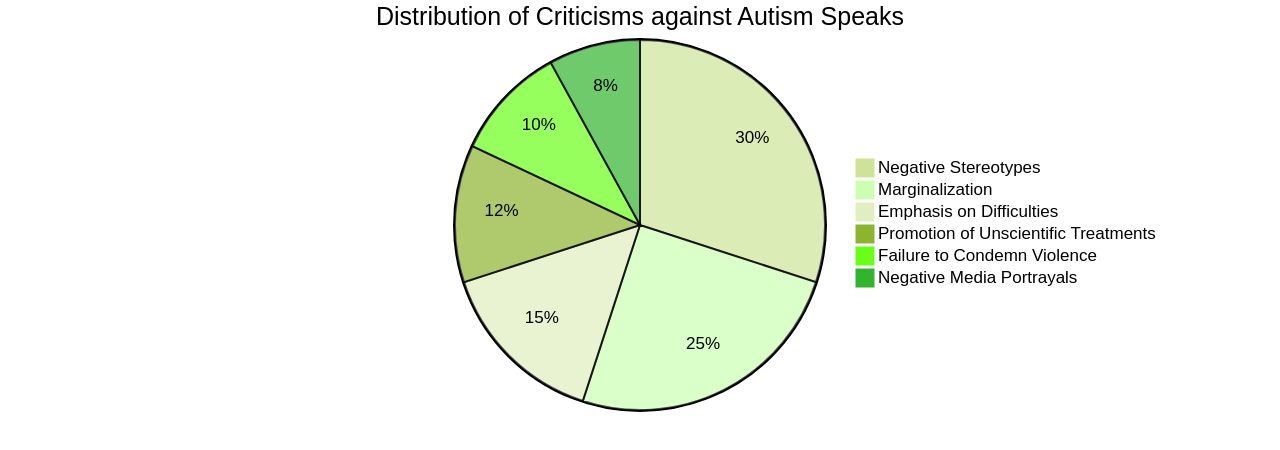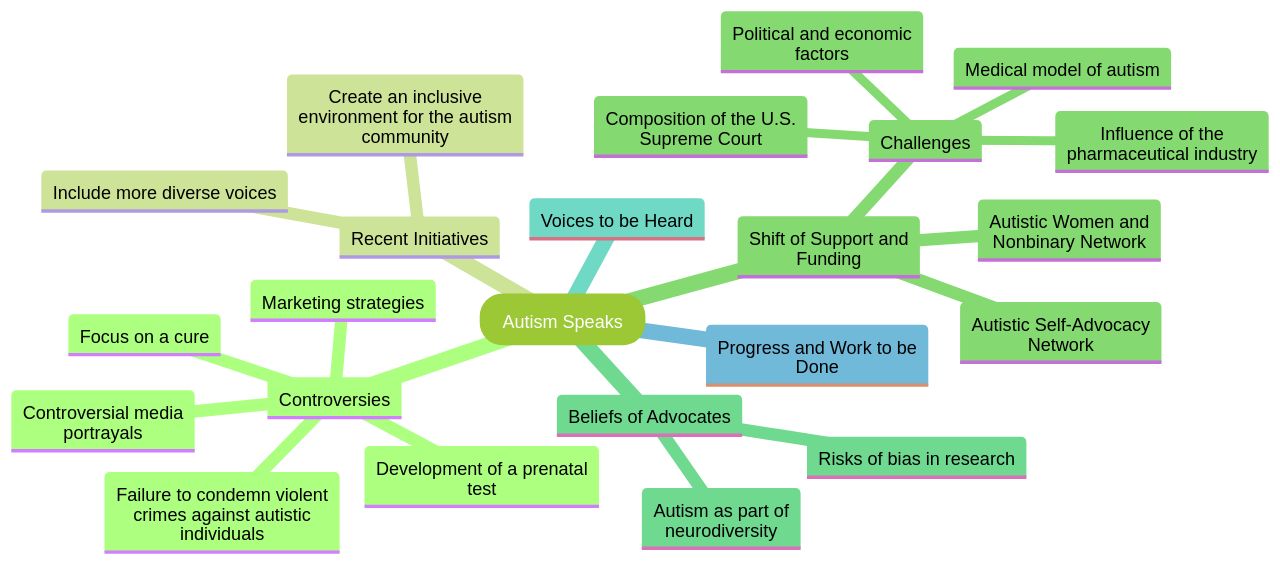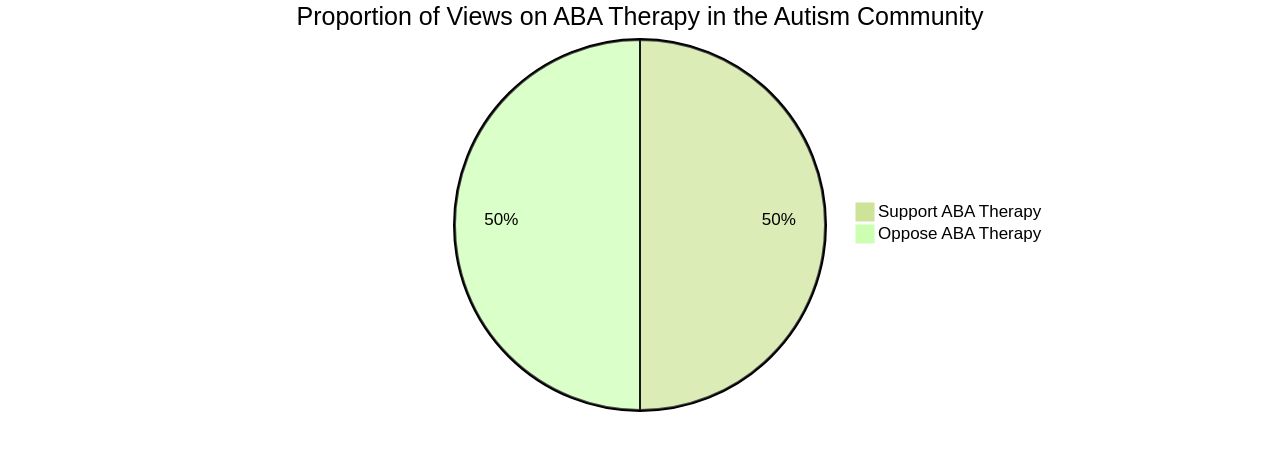Introduction
Autism Speaks, a prominent organization focused on autism awareness and advocacy, has faced significant criticism for its portrayal of the emotional impact of autism on families. Critics argue that the organization's communication often reinforces negative stereotypes, marginalizing individuals with autism and their families.
In this article, we will delve into the controversies surrounding Autism Speaks' messaging, its focus on a cure for autism, its involvement in Applied Behavior Analysis (ABA) therapy, and its response to criticisms. By exploring these issues, we aim to provide a comprehensive understanding of the ongoing debates within the autism community and shed light on the need for a more inclusive and empathetic approach to supporting individuals with autism and their families.
Criticisms of Autism Speaks' Portrayal of the Emotional Impact of Autism on Families
Autism Speaks has been heavily criticized for its depiction of autism’s emotional impact on families. Critics suggest that the organization’s communication often enhances negative stereotypes, marginalizing individuals with autism and their families.
They argue that the organization excessively emphasizes the difficulties and burdens of autism, overlooking the strengths and unique viewpoints of individuals on the spectrum. Laura Kasbar, a mother of twins with differing severities of autism, is one such critic.
She was told her son would likely remain non-verbal despite extensive therapy, but she refused to accept this. Her story underlines the potential of individuals with autism, countering the narrative of Autism Speaks.
Other parents like Rob, who has verbal and articulate autistic children, highlight the communication potential in autism, again countering the organization's narrative. Mothers like the one who shared her seven struggles as an autistic mother, remind us that autism is not just about challenges but also about resilience and strength.
The controversy surrounding Autism Speaks also includes its failure to condemn violent acts against individuals with autism and the promotion of unscientific treatments. Furthermore, their media portrayals have been criticized for their negative depiction of autism, which has been linked to harmful actions towards individuals with autism. Despite criticism, it's important to remember that each day with autism brings a new beginning and ending, and hope remains a constant companion. Autism is a neurodevelopmental disorder with no single known cause, but it's not due to vaccines, parenting, or nutrition. With a prevalence of 24.8 million people worldwide, it is a condition that deserves accurate and empathetic representation.

Autism Speaks' Response to Criticisms of its Messaging
Autism Speaks, once known for viewing autism as a condition in need of a cure, has faced significant criticism over time. This criticism has stemmed from their controversial shift towards developing a prenatal test for autism since 2016, drawing comparisons to past eugenic practices.
Their media portrayals have also been contentious, with their 9-minute film, 'Autism Every Day', receiving backlash for its depiction of familial challenges. Particularly concerning was a parent's disturbing statement about thoughts of harm towards her autistic child made in the child's presence.
Further controversy arose from the organization's perceived failure to condemn violent crimes against autistic individuals, such as a brutal attack on an autistic teenager in Maryland in 2014. The organization has also been critiqued for its focus on parents of autistic children in its marketing strategies, overshadowing the voices of autistic individuals themselves. Despite these criticisms, Autism Speaks has acknowledged the need for change in its messaging and has begun to include more diverse voices in its advocacy efforts. The organization is striving to better support the autism community through these initiatives, aiming to rectify past mistakes and create an inclusive environment that respects and values the experiences of those with autism.

Historical Controversies: Autism Speaks' Focus on a Cure for Autism
Autism Speaks has faced substantial controversy over its historical stance on autism. The organization initially positioned autism as a condition requiring a cure, a perspective that many critics argue perpetuates the perception of autism as a disease rather than a difference to be celebrated, in line with the neurodiversity movement.
The organization's approach has evolved over time, with a shift towards developing a prenatal test for autism since 2016, leading to comparisons to eugenic practices of the past. Autism Speaks' portrayal of autism has also sparked debate.
Its films, such as 'Autism Every Day' and 'I Am Autism,' have been criticized for their negative portrayal of autism and the potential harm they can cause to autistic individuals. For instance, 'Autism Every Day' featured a parent discussing thoughts of harm towards her autistic child, a statement made in the child's presence.
The organization's approach to autism has been implicated in instances where harm has come to autistic individuals. For example, Autism Speaks did not condemn a brutal attack on an autistic teenager in Maryland in 2014, raising questions about the organization's stance on such matters. Furthermore, Autism Speaks has been accused of contributing to a concerning trend wherein some parents seek alternative treatments for their autistic children that lack scientific backing. This is part of a broader debate about the impact of Autism Speaks' messaging on public perception and the well-being of autistic people. These controversies highlight the need for a more nuanced understanding of autism, recognizing it as a spectrum disorder with diverse manifestations rather than a disease to be cured.
Autism Speaks' Involvement in Applied Behavior Analysis (ABA) Therapy
Applied Behavior Analysis (ABA) therapy, a key intervention championed by Autism Speaks, has sparked significant controversy within the autism community. The therapy involves an intensive regimen, often requiring up to 40 hours per week, where children are repetitively taught basic tasks.
While some individuals, including researchers and parents, support ABA for its perceived benefits in improving language, cognitive abilities, and adaptive behavior, others voice strong opposition. Critics argue that ABA therapy can be punitive, attempting to suppress harmless autistic behaviors like stimming - repetitive movements or sounds that autistic individuals use to self-soothe or manage anxiety.
They suggest that rather than trying to eliminate these behaviors, society should strive to accommodate them. This divergence in views has led to numerous unsettling accounts of ABA therapy, with some parents even resorting to secretly filming sessions to expose questionable practices.
Despite ABA's endorsement by Autism Speaks, it's essential to acknowledge that it doesn't suit every individual or family. The therapy's demanding schedule can strain family dynamics, infringe on privacy, and limit social engagement. Additionally, the therapy's effectiveness varies, with some studies questioning its long-term benefits and the quality of the supporting research. As the debate over ABA therapy continues, the autism community is increasingly advocating for a more nuanced, individualized approach to autism intervention. They are pushing for a shift in focus towards embracing neurodiversity and providing support that respects and values autistic individuals' unique experiences and needs.

Conclusion
In conclusion, the controversies surrounding Autism Speaks' messaging and practices highlight the need for a more inclusive and empathetic approach to supporting individuals with autism and their families. Critics argue that the organization's communication often reinforces negative stereotypes, marginalizing individuals with autism and overlooking their strengths and unique viewpoints.
Furthermore, Autism Speaks' historical focus on a cure for autism has perpetuated the perception of autism as a disease rather than a difference to be celebrated. The organization's involvement in Applied Behavior Analysis (ABA) therapy has also sparked significant controversy.
While some support ABA for its perceived benefits in improving language and cognitive abilities, critics argue that it can be punitive and suppress harmless autistic behaviors. The autism community is advocating for a more nuanced, individualized approach that embraces neurodiversity and respects the unique experiences and needs of autistic individuals.
Despite these criticisms, Autism Speaks has acknowledged the need for change in its messaging and advocacy efforts. The organization is striving to rectify past mistakes by including more diverse voices in its initiatives and creating an inclusive environment that values the experiences of those with autism. It is crucial to remember that each day with autism brings new possibilities, and hope remains a constant companion. Accurate and empathetic representation of autism is essential, given its prevalence of 24.8 million people worldwide. By fostering understanding, acceptance, and support, we can create a world where individuals with autism are valued for their strengths and contributions.




